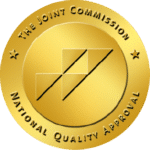Nicole Linton, the nurse who killed six people in L.A. recently while driving her car through an intersection, struggled with mental health and displayed “increasingly frightening” behavior before the collision, her attorneys said.
It is said that she has bipolar disorder, was medication non-compliant, and was unconscious when she went through the intersection, according to her attorneys.
Bipolar disorder is one of the most widely misunderstood mental health conditions, even among those who have it. In fact, as many as 60% of people diagnosed with bipolar are only aware of its less-well-known manic side and generally don’t know much about how it also often comes with depressive lows. Unfortunately, misunderstandings tend to lead to damaging myths that can make life even harder for those who have bipolar. Stigma around the condition can affect education, job prospects, relationships, and more. It also makes it harder for people to get the support they need to cope with – and thrive with – this illness. The good news is there are many ways you can get help if you have been diagnosed with bipolar disorder or suspect that you do.
Recognize the signs and get a diagnosis
If you’re experiencing symptoms that might be caused by bipolar disorder, you’ll want to get a diagnosis. Some people are lucky and catch their symptoms early enough to diagnose themselves. However, medical professionals are often needed to make a diagnosis, especially since bipolar symptoms can vary widely from person to person. If you’re experiencing overwhelming feelings, you might feel as though you are out of control. Mood swings can be dramatic and sudden, and you may experience unusual shifts in energy and sleep patterns without understanding why, or you might feel an excessive need to be alone. You may feel the urge to do things at a frenzied pace and have difficulty stopping even when you know you’ve reached a point of being overextended. You may also have periods of intense sadness and thoughts of hopelessness or pessimism. If you have bipolar disorder, you’ll likely experience extreme emotional highs and lows that aren’t related to what’s going on around you. If any of these sound familiar, speak with your doctor about your concerns.
Medication and therapy
When it comes to getting help for bipolar disorder, it’s important to understand that neither medication nor therapy is a catch-all solution. Instead, they work best when used together. For those in treatment, medication is the most common way to get help with bipolar disorder. However, many people with bipolar disorder also use therapy. For example, cognitive behavioral therapy (CBT) is a type of therapy that has been found to be particularly effective in treating bipolar disorder. When it comes to medication, it’s important to note that there is no one cure-all for bipolar disorder. Instead, treatment for bipolar di





